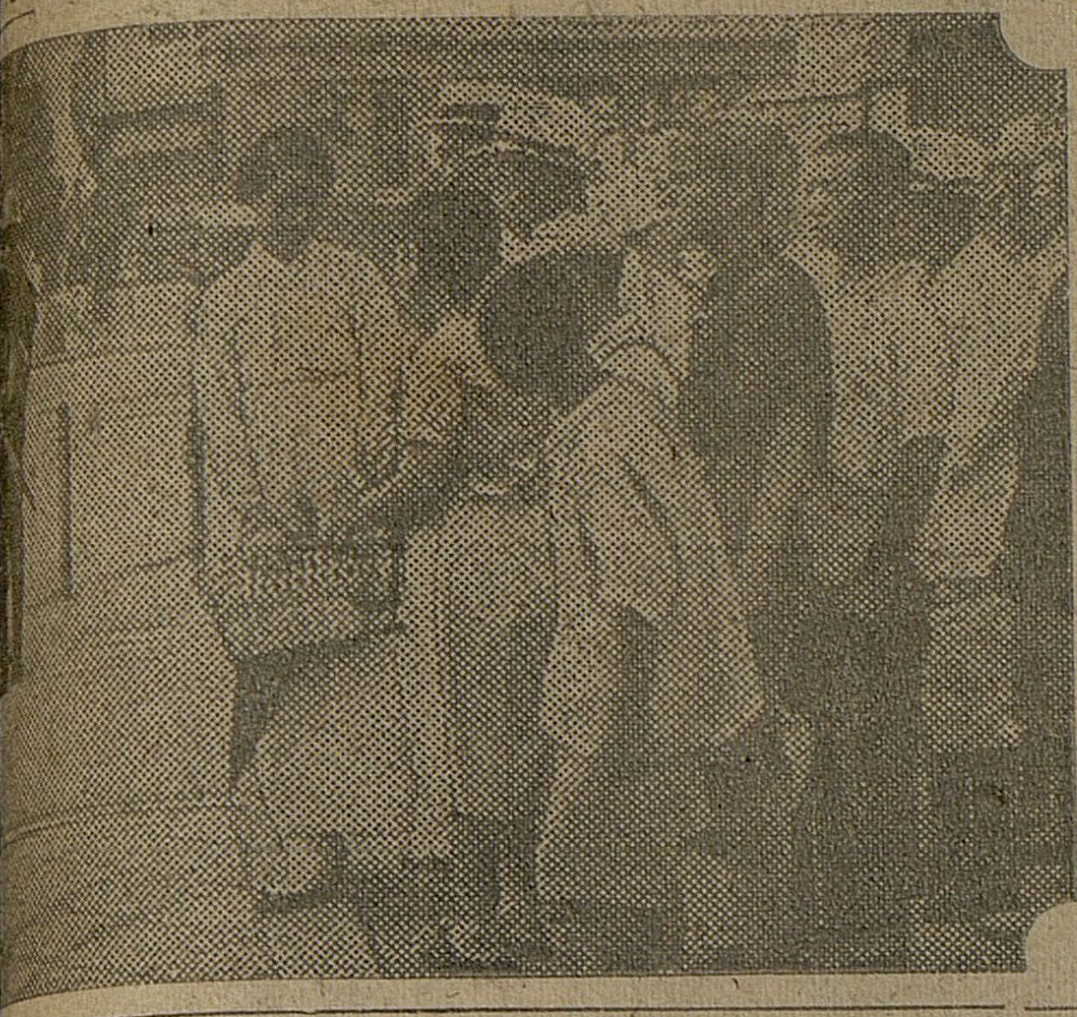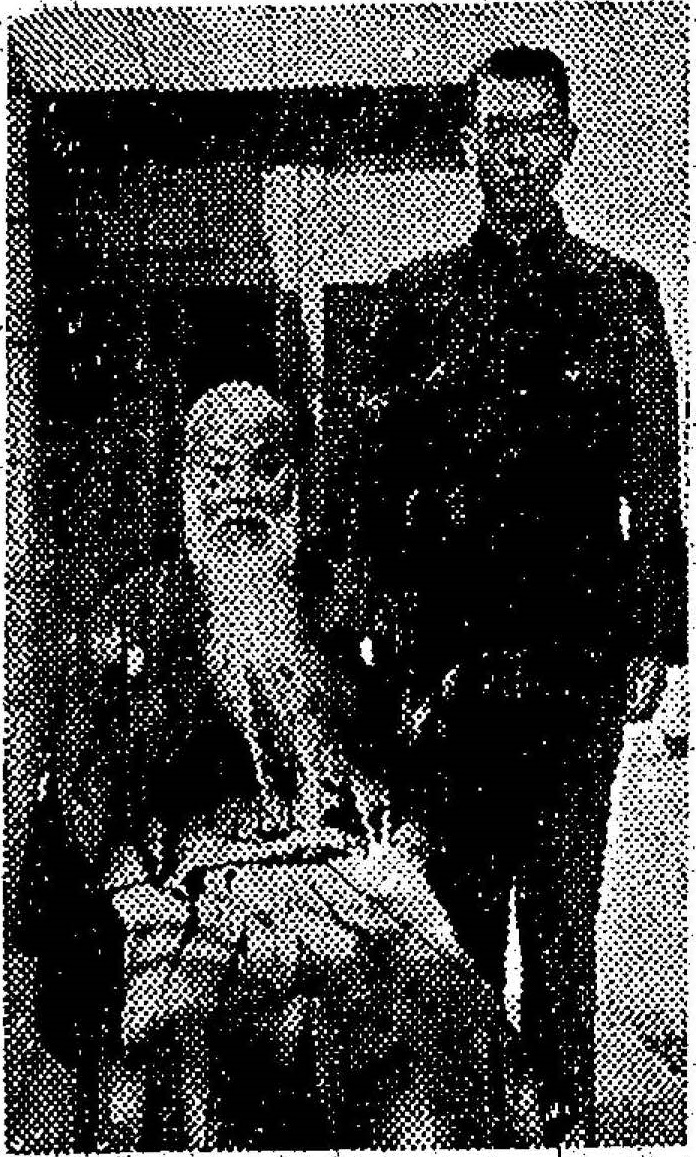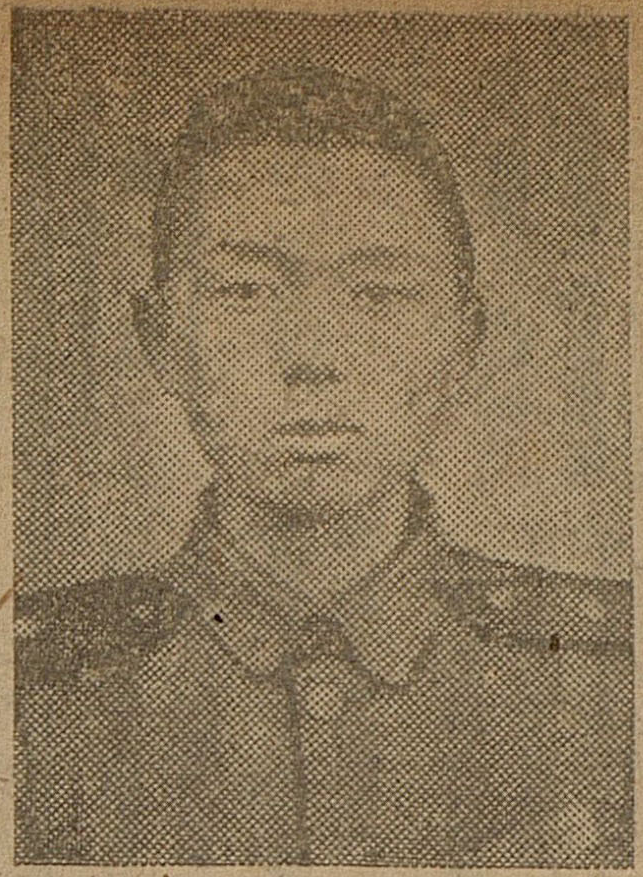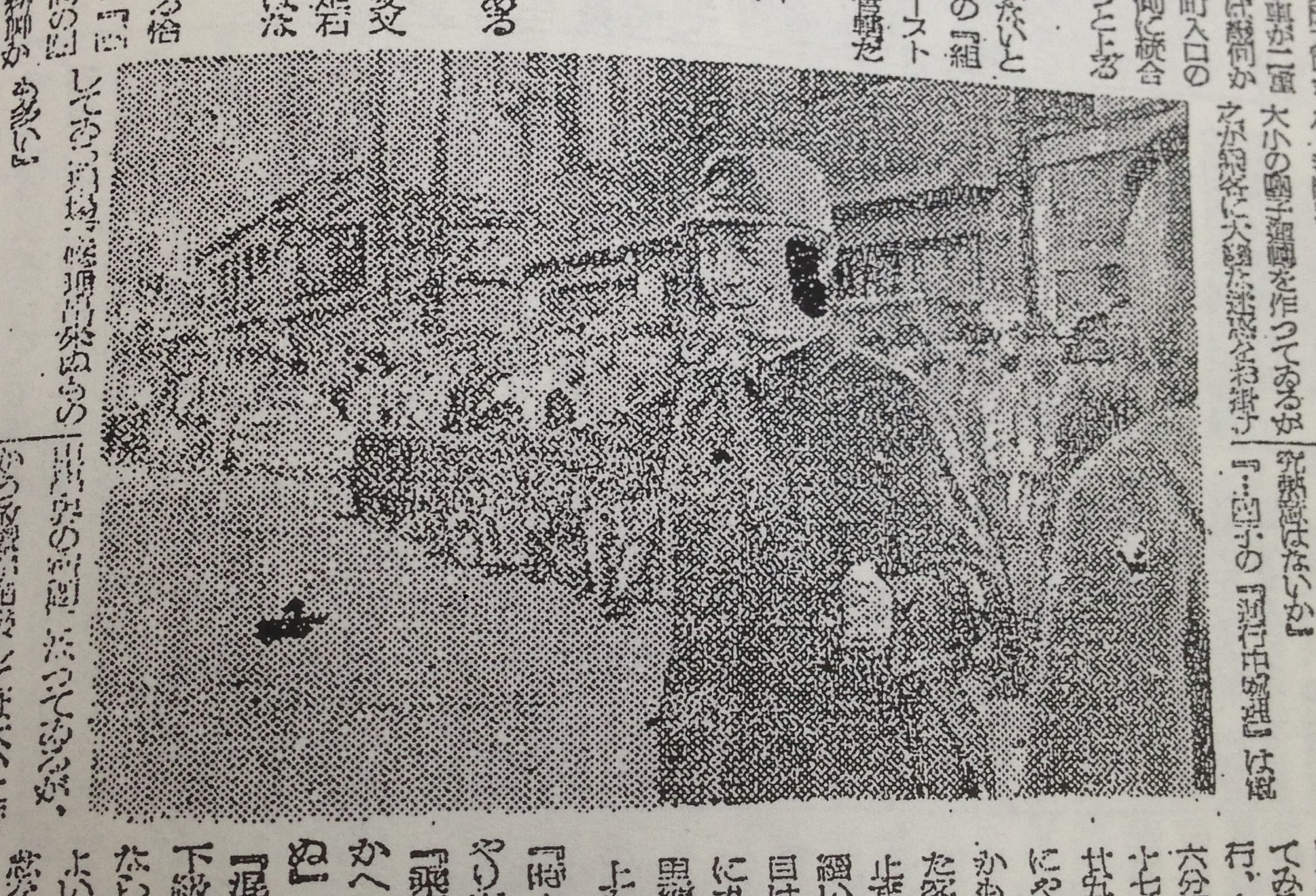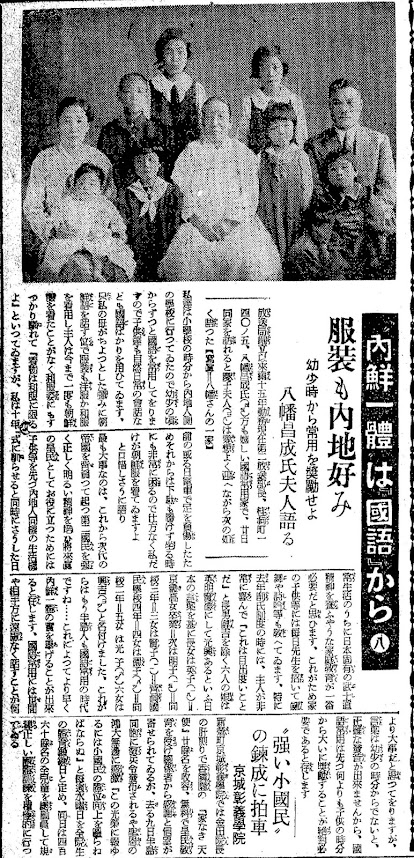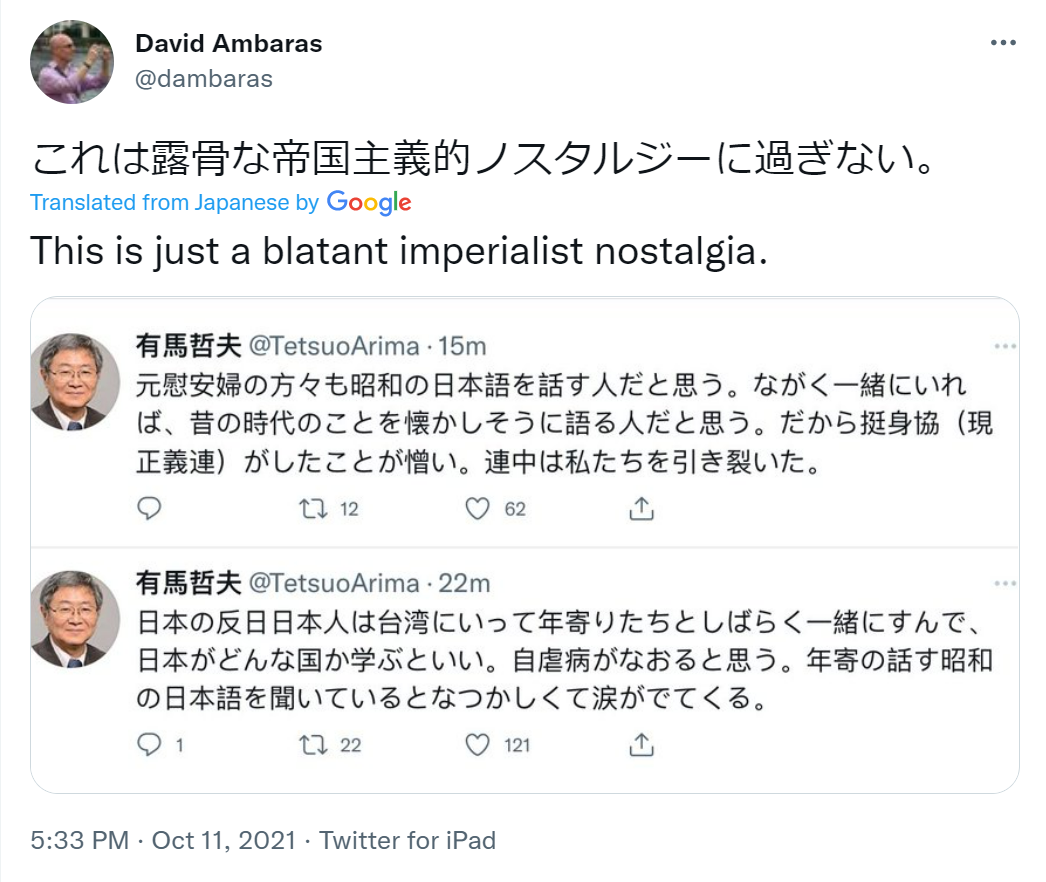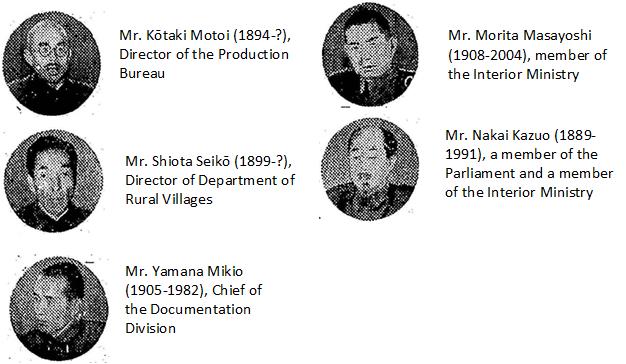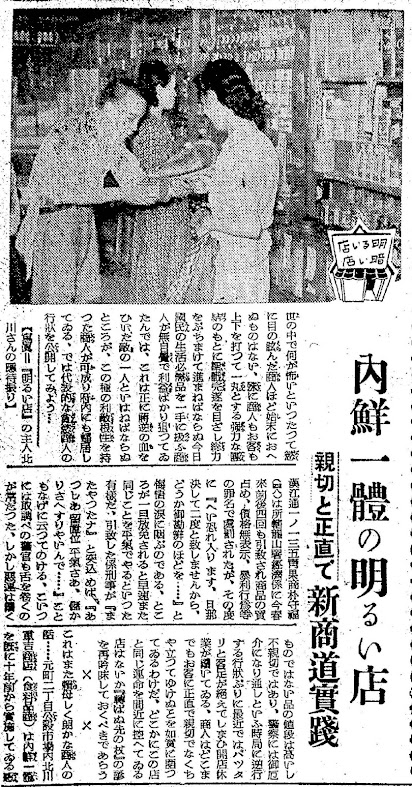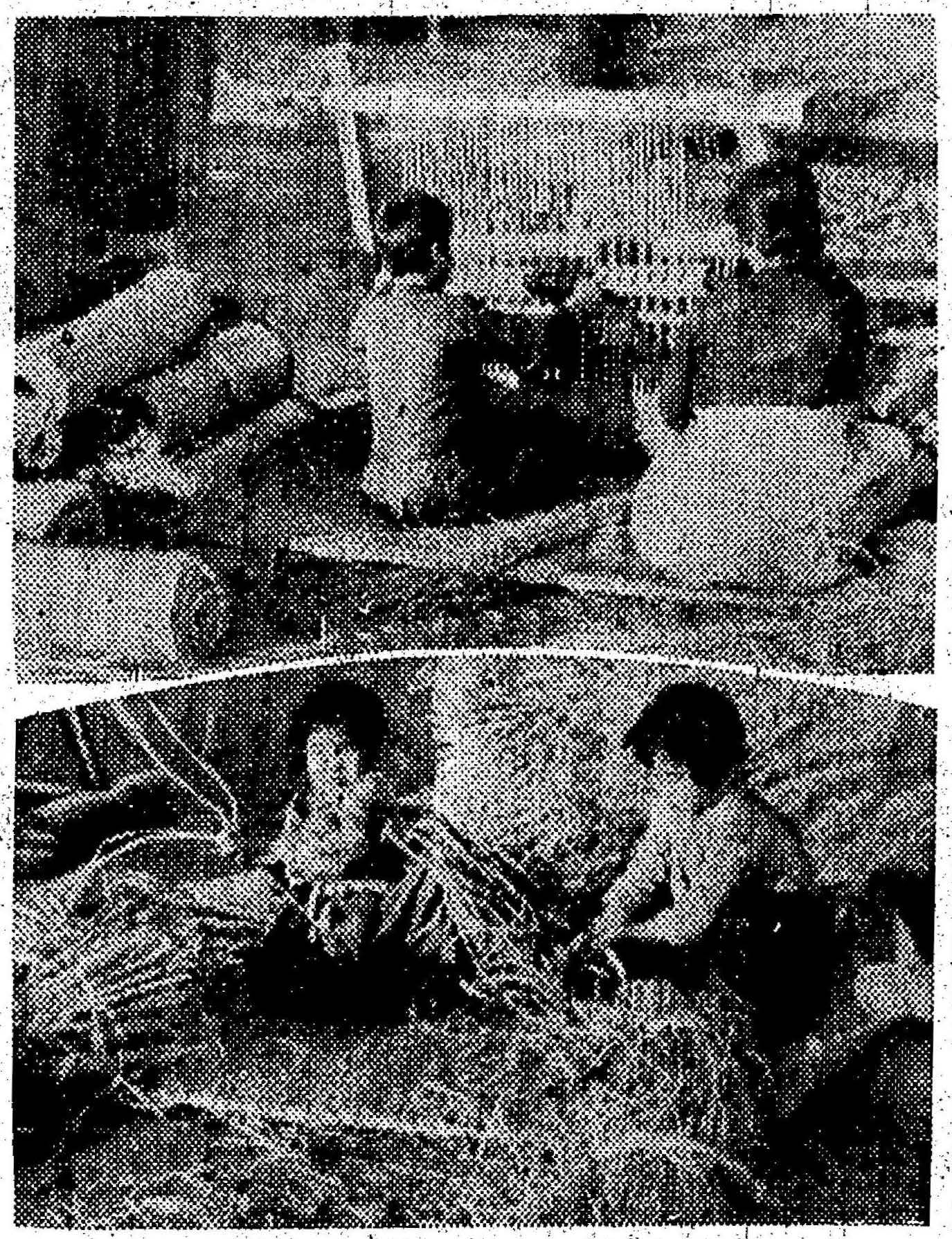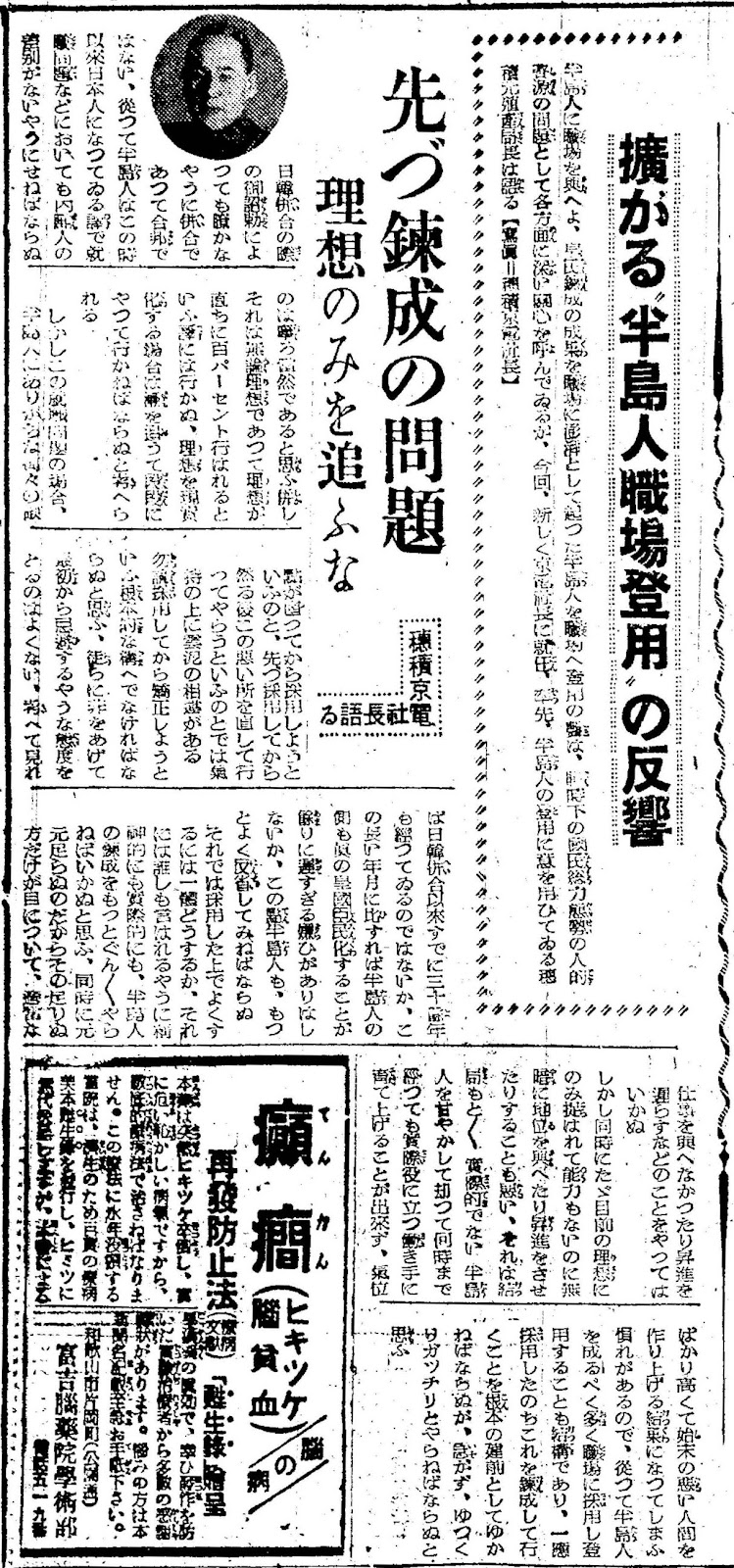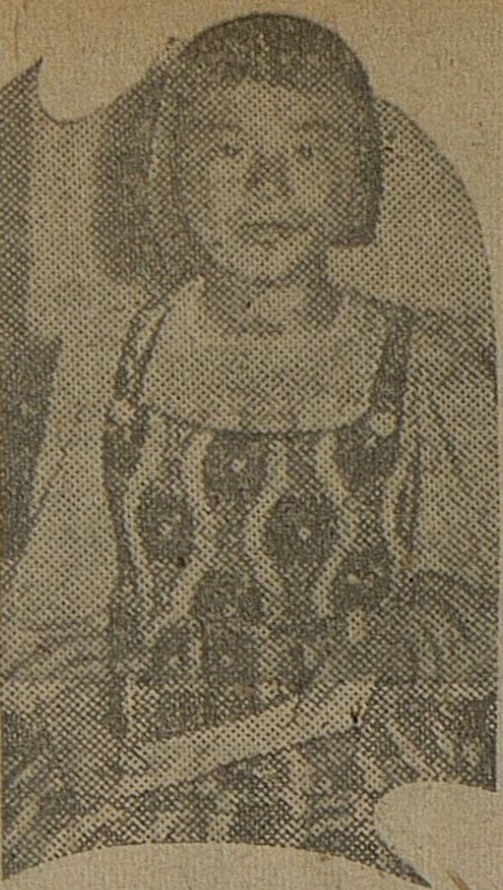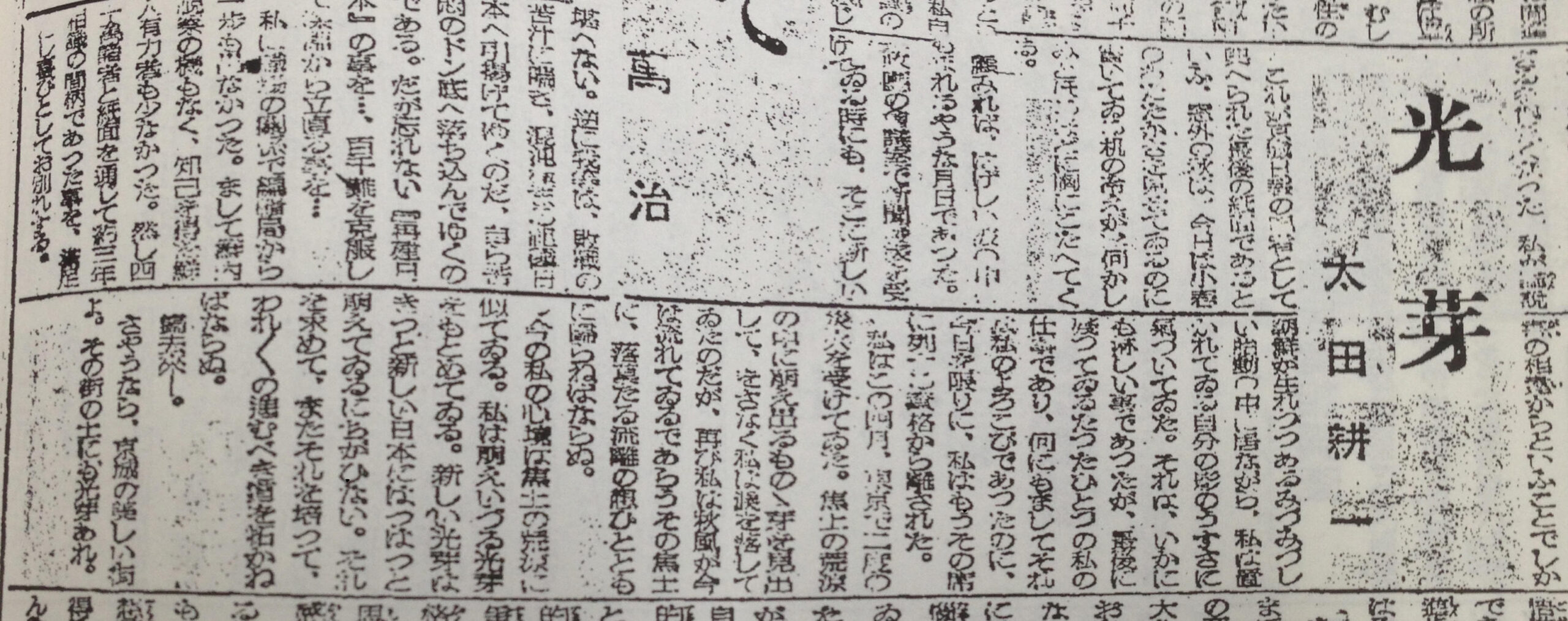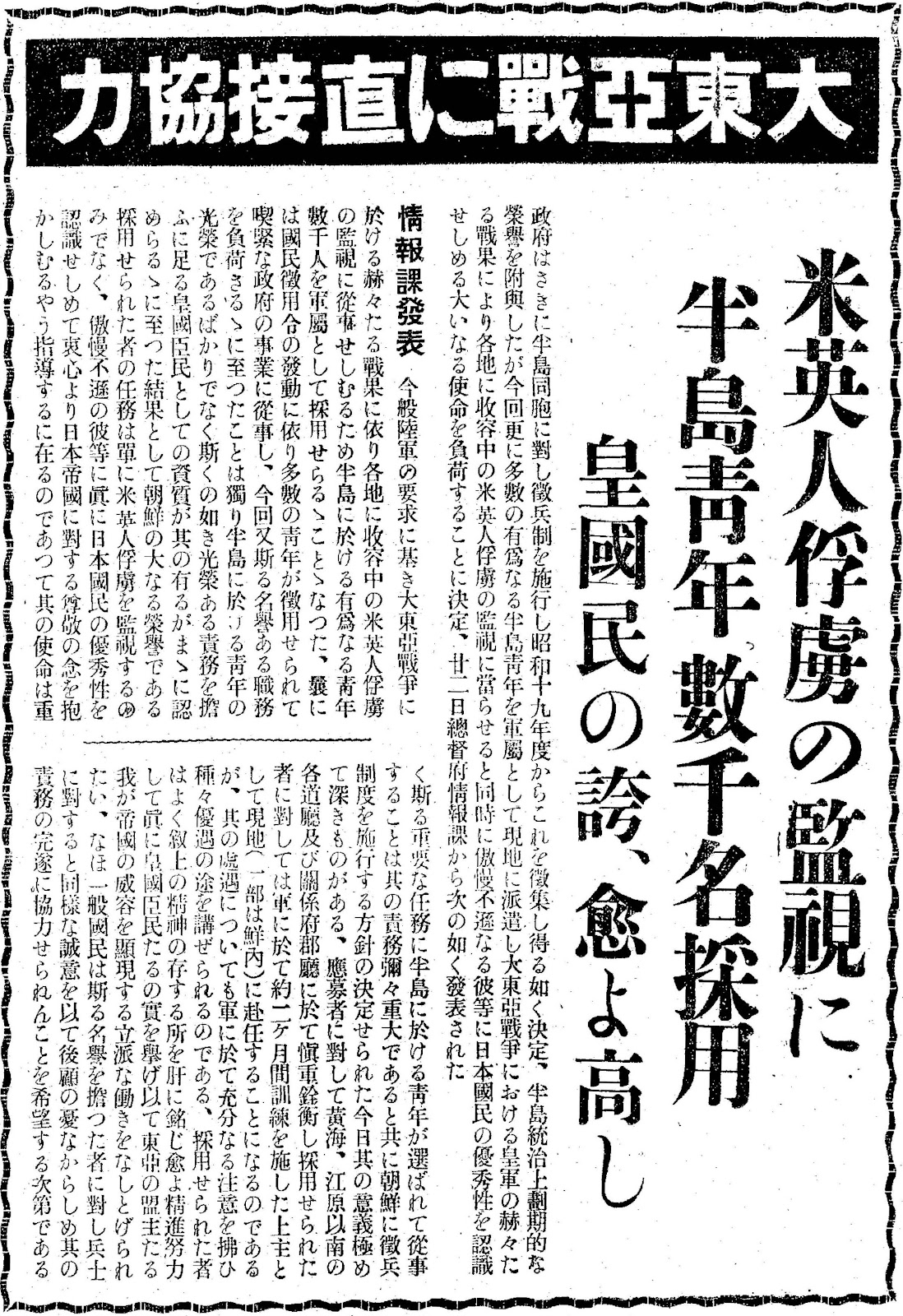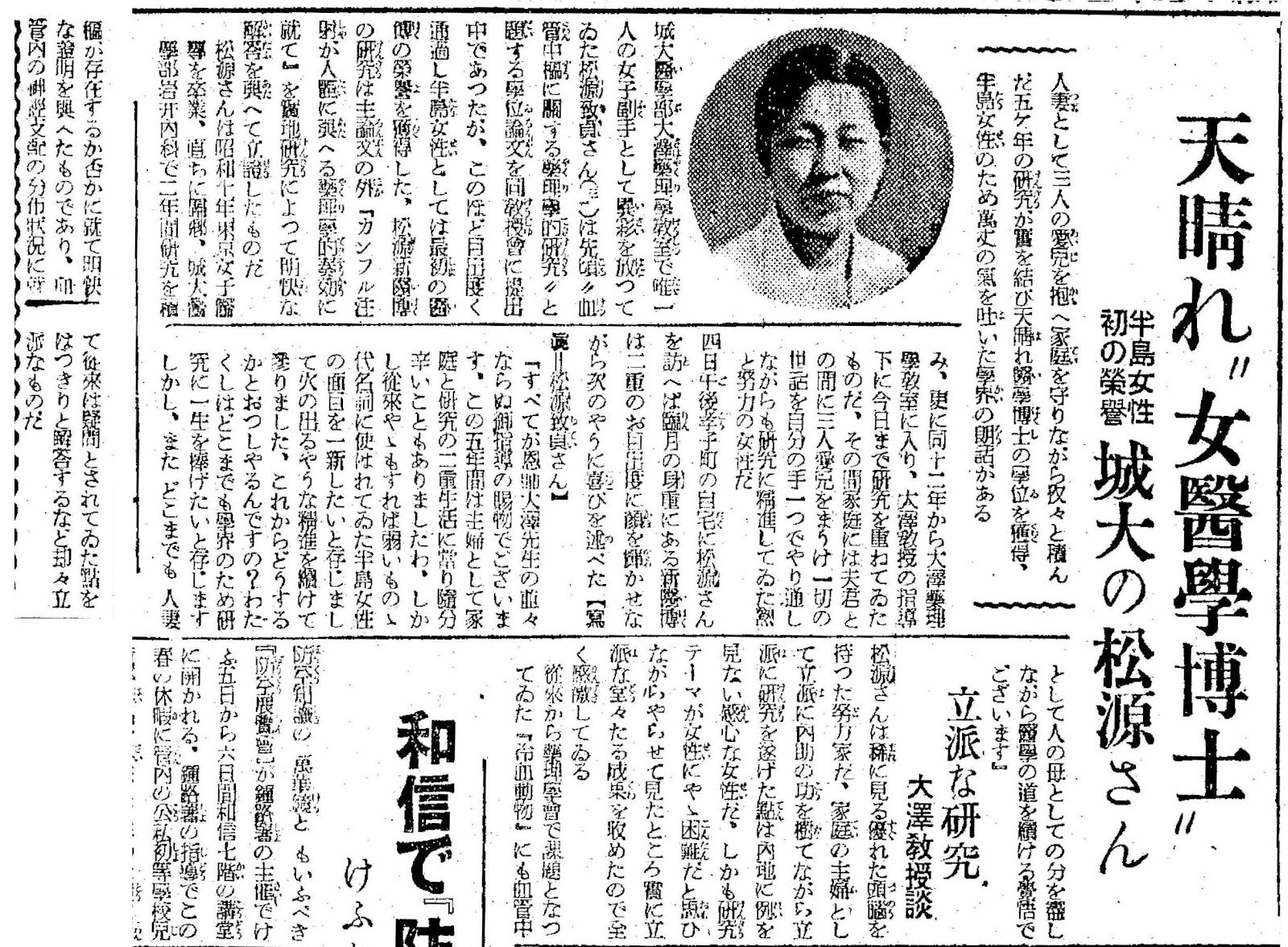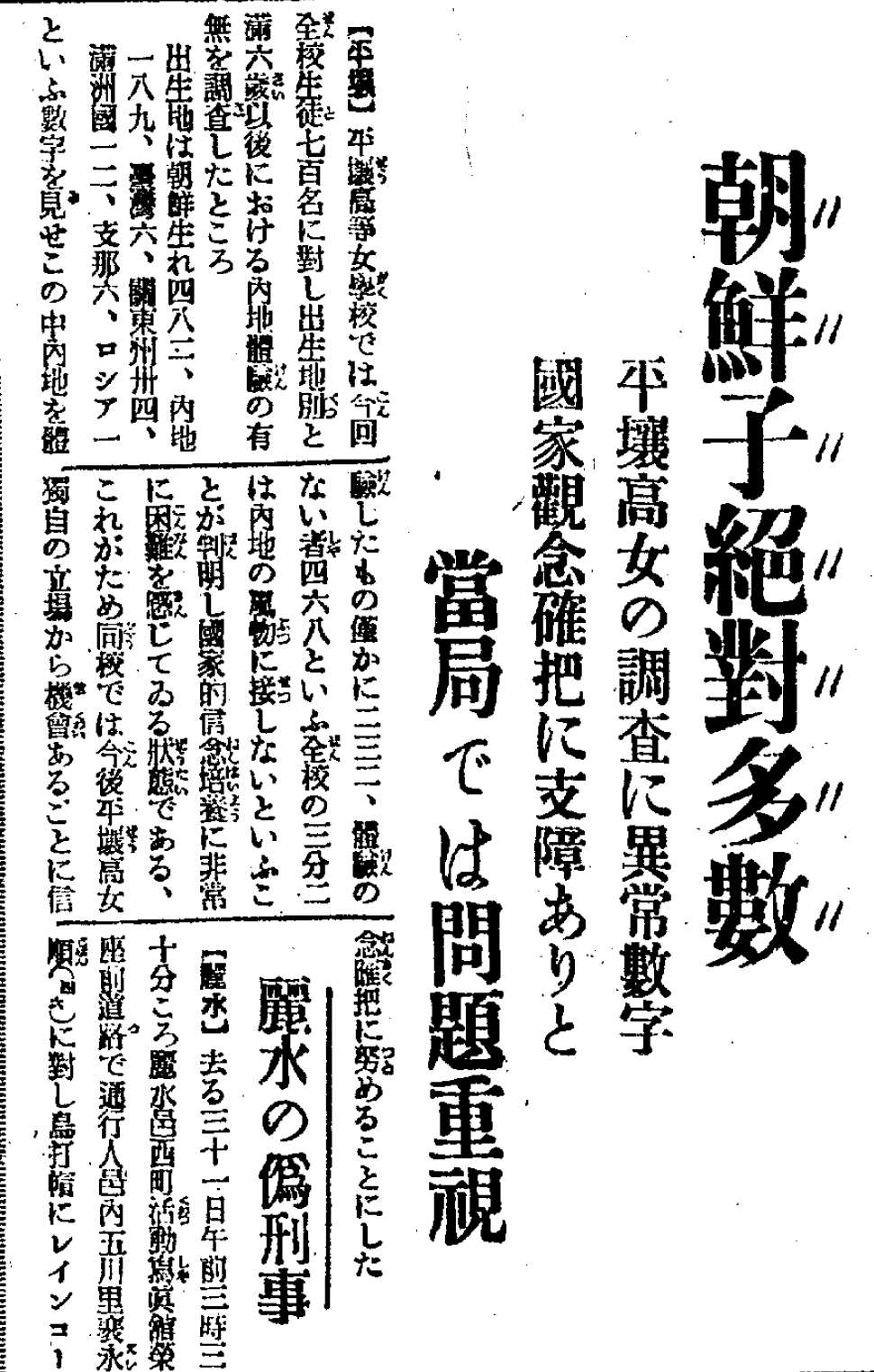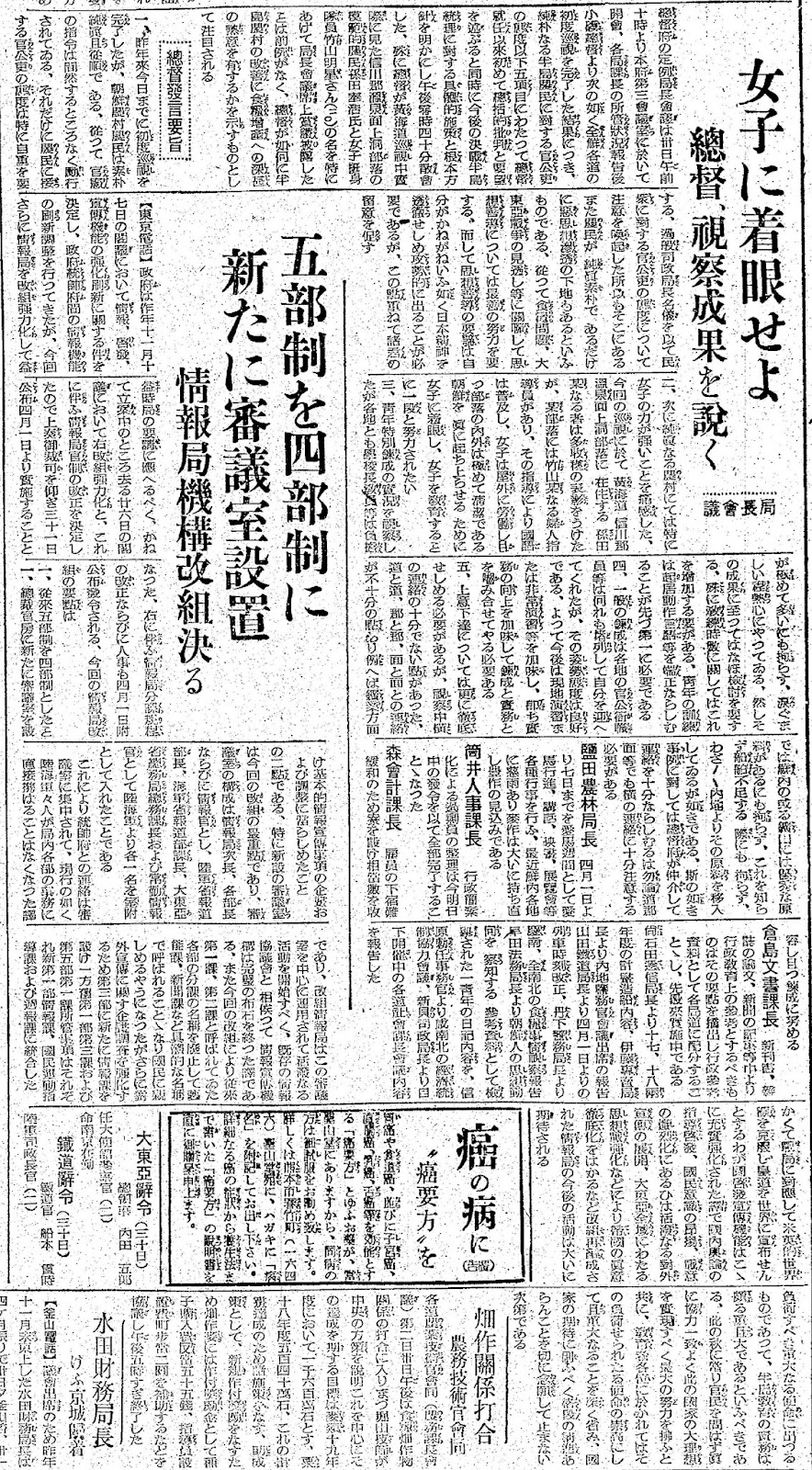
March 1943 edict of Governor Koiso of Japan-occupied Korea focusing on Korean girls in assimilation campaigns to “penetrate them with the Japanese spirit and be aggressive”
(my translation)
Keijo Nippo (Gyeongseong Ilbo) March 31, 1943
Focus on the girls
The Governor explains the results of his inspection
Director-General’s Meeting
The regular meeting of the Directors-General of the Governor-General’s Office was held at 10 a.m. on the 30th in Conference Room No. 3 in Seoul. After each Director-General reported on the status of his respective jurisdiction, Governor Koiso spoke on the results of the completed initial inspection of all the provinces in Korea. For the first time since he assumed the office of Governor, Koiso made some comprehensive criticisms and demands on the following five points pertaining to the attitudes of government officials toward the simple peasants of the peninsula. At the same time, he clarified the concrete measures and fundamental policies for future decisive battles for control of the peninsula, and the meeting was dismissed at 12:40 p.m. It is particularly worth noting that the Governor mentioned the names of Ms. Magoda Tomohiro, a model farmer of Sang-dong village, Uicheon-myeon, Sincheon-gun, and Ms. Takeyama Meisei (20), a member of the Women’s Volunteer Corps, whom he actually saw during his inspection of Hwanghae Province, and praised them at the Director-General’s Meeting, which was without precedent. This is noteworthy as it shows how the Governor has a profound enthusiasm for the improvement of the rural areas on the peninsula and for increasing food production.
Summary of the Governor’s Remarks
Firstly, I have completed my first inspection since last year to date, and the farmers in the Korean villages are simple, innocent, and obedient. Therefore, the orders of the authorities are being obeyed without hesitation. For this reason, the attitudes of the officials who come into contact with the peasants need to be especially careful. This is the reason why we have recently issued a warning in the name of the Director General of the Bureau of Civil Administration regarding the attitudes of government officials toward the people. In addition, the fact that the peasants are so naive and simple gives them a basis for permeating evil thoughts. Therefore, in view of the food problem and the prospects of the Greater East Asia War, we must make our best efforts to promote good thought. Therefore, I would like to remind you that the key to good ideological guidance is to penetrate them with the Japanese spirit and be aggressive, as I have always said.
Secondly, I was keenly aware of the strength of the girls, especially in the pure rural areas. A certain Magoda, who lives in Sangdong, Uicheon-myeon, Sincheon-gun, Hwanghae Province, received an award for her good harvest. In the village, there was a women’s instructor named Takeyama, through whose guidance the Japanese language has been spread, girls are working outdoors, and the inside and outside of the village are extremely clean. I hope that more efforts will be made to focus on the girls and educate them in order to truly revitalize Korea.
Thirdly, I observed the actual situation of the special training of young people, and found that the school principals and teachers in each area were working with tearful enthusiasm, despite their extremely heavy workloads. However, the results still need to be examined, especially the number of training hours which needs to be increased. In the training of young people, it is necessary first of all to make their behavior and language correct.
Fourthly, as for general training, all the government and public officials in various places lined up to welcome me, and their attitudes were good. Therefore, in the future, it is necessary to take into account field exercises and emergency exercises. In other words, it is necessary to take into account the improvement of practical work, and to mesh training and practical work together.
Fifthly, we need to be even more thorough in our instructions to the superiors, but during the inspection, there were points where lateral communication was not sufficient. There were places where province-to-province, gun-to-gun (county-to-county), myeon-to-myeon communications were insufficient. For example, in the mining industry, although there are excellent raw materials in some mines in Korea, they do not know about them, and when there is a shortage of ships, they go out of their way to import the materials from Japan proper. It is necessary for the Governor-General to act as an intermediary in such cases to ensure that there is sufficient communication, and also to pay attention to lateral communication among the provinces, counties, and myeons.
Mr. Shiota, Director General of the Agriculture and Forestry Bureau: From April 1st to the 7th, various events will be held as the “Horse Lovers’ Week,” including horse marches, lectures, movies, and exhibitions. Because of recent post-drought rains in parts of Korea, the wheat crop is expected to pick up and produce a good harvest.
Mr. Tsutsui, Chief of the Personnel Division: All of the excess staffing due to administrative simplification will be completed with the issuance of tomorrow’s orders.
Mr. Mori, Chief of the Accounting Section: In order to alleviate the lodging difficulties of hired workers, a dormitory will be established to house a considerable number of them and efforts will be made to train them.
Mr. Kurashima, Chief of the Document Division: It has been decided that new books, articles in magazines and newspapers that should be used as reference material for administrative education will be summarized and distributed to each bureau and district as administrative reference material.
Mr. Ishida, Director General of the Bureau of Telecommunications, reported on the plans for shipbuilding in the 1942 and 1943 fiscal years. Mr. Ito, Director General of the Monopoly Bureau, reported on his attendance at a meeting of local salt officers. Mr. Yamada, Director General of the Railway Bureau, reported on the revision of train schedules from April 1. Mr. Tange, Director General of the Police Bureau, reported on his inspection of the food situation in Gyeongnam and northern and southern Korea. Mr. Hayata, Director General of the Legal Affairs Bureau, reported on the diary of a young Korean man who was arrested as a reference material for detecting the ideological trends of Korean people. Mr. Nobuhara, Imperially appointed Secretary, reported on the contents of the meeting for economic control and cooperation in Hamnam and Hambuk. Mr. Shingai, Director General of the Administration Bureau, reported on the contents of the ongoing meeting of the heads of provincial social sections.
In response to the war situation, our country’s enlightenment and propaganda functions, which are aimed at overcoming the Anglo-American world view and proclaiming the Imperial Way to the world, have been enhanced and strengthened. They were reorganized to thoroughly enforce the Japanese Empire’s true intentions through guidance and enlightenment of public opinion within Japan, the raising of national awareness, the intensification of the militaristic spirit, the activation of internationally-directed propaganda, and the strengthening of ideological warfare throughout Greater East Asia. There is much to look forward to in the future activities of the intelligence bureau.
This is a serious mission to be undertaken, and the task of education on the peninsula is extremely important and great. This autumn, I sincerely hope that all of us in the public and private sectors will make our utmost efforts to cooperate and work together to realize the great ideals of this nation, and that all of you educators will reflect deeply on the noble and serious nature of the mission that you are charged with, and make great efforts to meet the expectations of the nation.
Five Departments to be replaced by Four Departments
Intelligence Bureau Reorganized
At a cabinet meeting held on November 17 last year, the government decided to strengthen and revamp the intelligence, awareness-raising, and propaganda functions, and to revamp and adjust the intelligence functions of the Government General Staff. In order to further reorganize and strengthen the Intelligence Bureau and meet the demands of the times, it was decided at the Cabinet meeting held on the 26th that the Intelligence Bureau should be reorganized and strengthened, and that the official system of the Intelligence Bureau should be revised accordingly. In accordance with the Emperor’s decision, the orders promulgated on the 31st are to be executed starting on April 1st.
The amendments to the regulations on the divisions of the Intelligence Bureau and the personnel will also be promulgated effective April 1. The main points of this reorganization of the Intelligence Bureau are as follows:
(1) The existing five divisions have been reorganized into four divisions.
(2) The establishment of a new Council Office in the Governor’s Secretariat to be in charge of planning and coordination of basic information and propaganda matters.
In particular, the newly established Council Office is the most important part of the reorganization. The Council Office is composed of the Deputy Director-General of Intelligence, the heads of each department, and intelligence officers, and included the Director of the Press Department of the Ministry of the Army, the Director of the Press Department of the Ministry of the Navy, the Director of the General Affairs Division of the General Affairs Bureau of the Ministry of East Asia, and one full-time intelligence officer each from the Army and Navy.
As a result, communication with the Government General is to be concentrated in the Council Office. Army and Navy personnel are no longer directly involved in the office work of each department of the bureau as they are now. The reorganized Intelligence Bureau is to be operated mainly by the Council Office, and in conjunction with the existing Intelligence Bureau, a complete information and propaganda organization have been set up to start active operations.
In addition, the reorganization abolished the names of the divisions of each department, which had previously been called the First Division and the Second Division, and instead gave them specific names, such as the Entertainment Division and the Newspaper Division, to make them more familiar to the public so as to be more liked by the people. In order to further strengthen the planning and investigation of foreign-directed propaganda, a new Information Section was established in the Third Department, while the matters under the jurisdiction of the former Third Section of the First Department and the First Section of the Fifth Department were integrated into the new Information Section of the First Department, the National Movement Guidance Section, and the Weekly Bulletin Section, respectively.
女子に着眼せよ
総督、視察成果を説く
局長会議
総督発言要旨
五部制を四部制に新たに審議室設置
情報局機構改組決まる
一、従来五部制を四部制としたと一、総裁官房に新たに審議室を設け基本的情報宣伝事項の企画および調整に当らしめたこと
